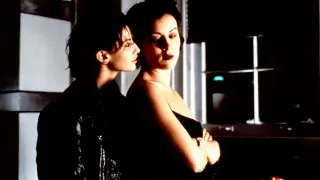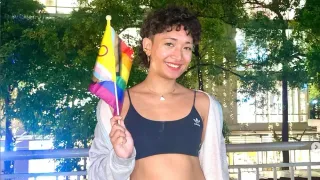June 13, 2015
SF DA Looks at Bias in Law Enforcement
Kilian Melloy READ TIME: 5 MIN.
San Francisco District Attorney George Gasc�n wants to develop better tools for prosecutors to use in order to determine if there is bias in the city's criminal justice system, he told the Bay Area Reporter.
Overcoming such bias is currently at the center of a task force Gasc�n announced this spring in the wake of several scandals in the police and sheriff's departments. Earlier this year, it was revealed that San Francisco police officers sent racist and homophobic texts. Then in late March, Public Defender Jeff Adachi said that sheriff's deputies allegedly forced at least two inmates to fight each other and gambled on the bouts.
As a result of the controversies, as well as problems with analyses from the police department's DNA lab, Gasc�n announced that he was expanding his task force to include three retired judges: Cruz Reynoso, formerly a justice on the California Supreme Court; Dickran Tevrizian Jr., a former federal judge; and LaDoris Hazzard Cordell, a lesbian who used to serve on the Santa Clara County bench. In recent years, Cordell has also served as the independent police monitor for the city of San Jose.
"I decided we would benefit from additional help," Gasc�n said in a recent editorial board meeting with the B.A.R .
But the pace of the task force's work may be slowed after it was reported last week that Mayor Ed Lee's proposed budget does not include Gasc�n's request for $383,315 to expand the task force.
Max Szabo, a spokesman for Gasc�n, told the B.A.R. last week that the task force will continue its work even if the funding is not in the budget.
"There's a difference of opinion as to whether or not the integrity of our justice system is a priority worth funding," Szabo said. "The task force will still operate but it will take longer than we hoped."
A spokesman for Lee said the mayor allocated a 5.5 percent increase, about $2.7 million, to the DA's budget, which will cover a variety of other requests made by Gasc�n, according to media reports.
Some of the task force's work is being done at no cost to the city, as some of its members are attorneys from large law firms working pro bono. The purpose of the panel is to look at prosecutions that might be tainted and to create mechanisms to look at implicit bias in cases.
"Generally you do not see explicit bias," Gasc�n noted in the May 21 meeting.
Gasc�n served as San Francisco's police chief from 2009 to 2011. In January 2011 he was appointed district attorney after former DA Kamala Harris won election as state attorney general. He said the text messages were upsetting to him and others.
"The text messages, frankly, were offensive to many communities," Gasc�n said.
Court documents related to a police corruption scandal involving former police Sergeant Ian Furminger around illegal searches and theft of property at single-room-occupancy hotels in 2009 and 2010 was what revealed the racist and homophobic text messages.
"I feel horrible about any behavior that occurred when I was there. It preceded me as well as after I left," Gasc�n said.
Public Defender Weighs In
The public defender's office, which brought some of the scandals to light, generally had praise for the DA's actions.
In an interview this week, Adachi said that he supports Gasc�n's decision to create the task force, but said there are limitations. For example, he said that there are protective orders in place that limit what information can be made available.
"It doesn't ID who said what," Adachi said, referring to the text message scandal. "Even the judges don't have that information.
He also said that merely reviewing police reports might not present the whole story behind the cases.
"What we've found, as far as racial profiling is concerned, is that they're going to need to talk to the people, the victims," he said. "I've talked to the DA about that. We have clients affected by this."
Adachi said his office formed a racial justice department a couple years ago and, with the University of Pennsylvania Law School's Quattrone Center, is in the midst of a study of San Francisco's criminal justice system. That report, funded by the center, is expected at the end of the year.
And, while much of the recent focus has been on African American men, Adachi noted that LGBTs are also affected.
"Certainly we know some of the texts were homophobic and at a minimum, LGBT individuals face double or triple prejudice, particularly LGBT people of color, trans people, and women," Adachi said.
Adachi said the city's criminal justice system - from the courts to parole - needs to have protocols in place "to address proactively and early on" instances of bias "so we're not reacting to it."
"I think we are all on the same page," he said of the DA's plans to address implicit bias.
Potential Red Flags
The top priority of the task force, Gasc�n said, is an examination of cases involving people who are in custody. In the text messaging case, that means looking at 3,000 cases, about 1,600 of which have been prosecuted.
"We're looking for anyone wrongfully prosecuted or wrongfully convicted," he said, adding that next they will examine cases in which a person may have committed a crime but the case is tainted.
"I think a lot of people in the community understand that prosecutors are the gate-keepers of the system," Gasc�n said. "A prosecutor has the ultimate responsibility that evidence comes in free of bias and is provided to the defense."
If there is bias on the part of police officers and they're making arrests and that information is not made available to the defense, that's not OK, he added.
Some indicators that bias could come into play might include instances where a group of police officers - or an officer - or prosecutor is consistently packaging information in a certain way in reports; in other words, there could be an effort to shape the investigation.
Another indicator may be if authorities see people similarly situated but treated differently.
"That's a red flag," Gasc�n said.
In light of the national conversation around black men being killed by white police officers (and in at least one case a young boy, Tamir Rice in Cleveland), Gasc�n was asked about his efforts to diversify the DA's office. He acknowledged that it's not easy.
"There's a tremendous lack of African American and Hispanic lawyers," he said, noting that of the office's 128 attorneys, 16 are African American.
"We have to be aggressive," Gasc�n said, adding that the department is "better than we were a year ago."
The office has good representation among Asians, women, and LGBTs.
Gasc�n said that the DA's office responds with an investigative team to every officer-involved shooting.
"It's really important that we get there early on, see the scene and talk to witnesses," he said.
He explained that the investigators "go in with no pre-conceived outcome" in an incident.
"An officer-involved shooting is a very high priority for us," Gasc�n said.
Sometimes in such cases, he said, the DA's office is left with a statement from the officer. Gasc�n wants more.
"That's why I'm so supportive of equipping the whole force with cameras," he said, adding that body cameras do "not solve everything."
"Most police officers are trying to do the right thing under difficult situations," Gasc�n said.






